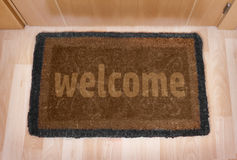Home Visitors

We all have home visitors from time to time and depending on our relationships, these visitors pose varying levels of risks. Some people visit our homes occasionally while others visit us regularly. Whether it’s for elderly care, home cleaning, appliance and home repairs, child care, or just friendly visits, they pose certain risks to our information, assets, and safety. Often, the longer we know someone, we trust them more than newly established personal or business relationships however some older and trustworthy relationships can also become very harmful.
One example of an old relationship which can go wrong is the single owner small business such as a house cleaning company which has been visiting a family home for years to provide services. The cleaning company is a small company which employs illegal aliens to keep the costs down. The family knows and trusts the business owner for a long time but has no idea about the employees and their backgrounds. Given the employment status of the employees and the business owner’s efforts to keep costs down, the family can assume that no background checks are performed on the employees and the company has a high turnover rate. In these cases employee loyalty is down and the risk of expulsion from the country is high. So what happens when an employee knows that he is to leave the country soon without a chance of returning any time soon, but no one else knows yet? That employee can decide to steal as much as he can and from as many sources as he can before leaving the country. This is just an example among thousands of examples that we could provide here but the point is that we have to assess the risks of home visitors.
If you allow visitors inside your home for any of the reasons mentioned above or any other reason, you probably hide your jewelry, cash, credit cards, account statements and bills, and any other documents that reveal information about your private life such as asset ownership, investments, and savings accounts. But for most people, many of these documents are openly available to anyone who wanders in the house. That would be ok if you stay with them for as long as they are in your house but many people leave them alone and even leave their house door open for them because they have to run errands or pick up the kids from school.
One of the most important risks that people overlook is their computers. Often home computers have no passwords and many of the accounts remain accessible including file and note sharing tools such as Google Drive and Evernote. These files sometimes include account passcode lists and other confidential documents. A computer savvy home visitor can easily copy the files on a USB thumb drive and take them for future browsing at the comfort of his home. Even more dangerous, are the bank and other financial accounts which remain accessible on the home computer because the account access information is saved.
When dealing with home visitors, it’s a good practice to secure all assets instead of blaming visitors for any incidents later on. Lock away all your belongings in a secure place including your documents. Lock your computer with a password, log off from the accounts and remove saved passwords to prevent unauthorized entry into your accounts, install an internet camera to monitor, log, and detect criminal activities and try to remain with the homer visitors in the house to prevent theft. Lastly, change your home access codes if you have one and it was revealed it to your visitors.
One of the problems with the gated communities is that the access code to open the gate is given away to many outsiders by homeowners in the community. This is why an RFID access system is best for communities and houses where there are many visitors unless you can afford a 24/7 security guard.
Learn about RFID access system to manage home visitors.








